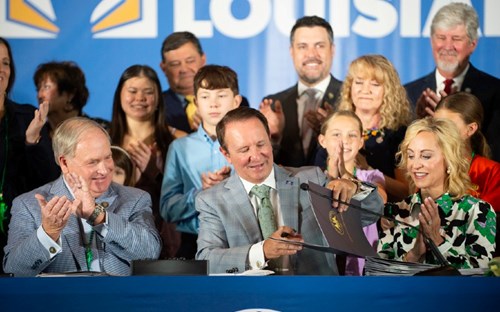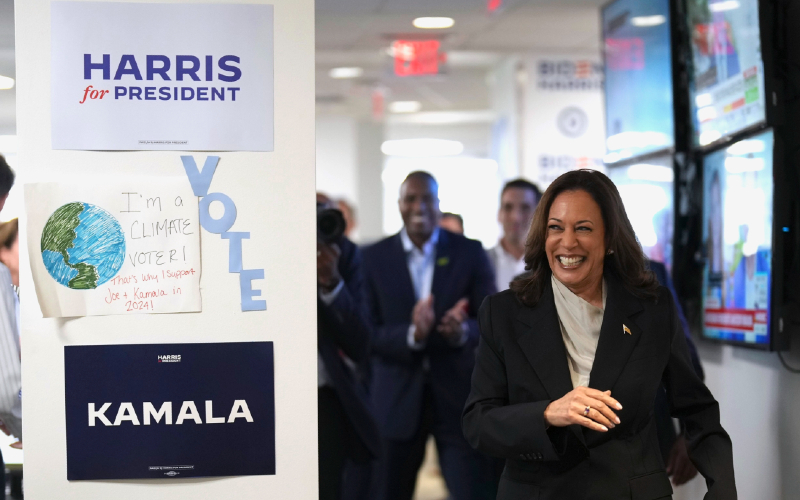Softened stances on the issues of life and same-sex "marriage" in the revised Republican Party platform have gotten blowback from the far right of the GOP. The differences between the 2016 and 2024 party platforms don’t end there. Changes in the handling of freedom of religion are also significant, Arielle Del Turco, the Family Research Council’s director for the Center for Religious Liberty, said on Washington Watch Friday.
Read the entire 2024 Republican platform
According to Del Turco, there's more support in the 2024 version for the right to practice religion than there is messaging on the right to life or on the definition of marriage, which is bypassed completely. In fact, she reported, religious liberty is “an area where the 2024 platform did pretty well. The religious freedom language is pretty good.”

The new platform says religious freedom isn’t confined to houses of worship or something that needs protection only on Sundays. It says Republicans are committed to defending that right, and also talks about a federal task force for looking into anti-Christian bias.
“That’s something we’ve never seen before in our country’s history, and it’s something that President [Donald] Trump has already talked about on the campaign trail,” Del Turco noted. “I think that’s something we can look forward to as conservatives and as people who do care about religious freedom and care about the discrimination that might be happening against Christians.”
Biden’s attacks on opposing viewpoints
But a good response on religious liberty could have been much better. The GOP platform, Del Turco explains, did little to hold the Biden administration accountable for its failure to address religious freedom issues as well as for its own violations of religious freedom.
“We’re living under a Democratic administration that right now is prosecuting pro-lifers who are singing hymns outside of abortion facilities. We see an administration that is pretty silent as churches continue to be targeted and attacked with vandalism and arson,” Del Turco described.
 Elements from the 2016 platform that were missing in 2024 include support for the First Amendment Defense Act and support for the Ten Commandments in schools.
Elements from the 2016 platform that were missing in 2024 include support for the First Amendment Defense Act and support for the Ten Commandments in schools.
Louisiana Gov. Jeff Landry (right) signed a law in June requiring all of his state’s classrooms to display the Ten Commandments. Federal Judge John deGravelles has issued an order postponing the implementation of the law until Nov. 15. The law now requires schools to have the Ten Commandments displayed by Jan. 1, 2025, pending the outcome of a lawsuit filed on behalf of families of different faiths.
The 2024 platform also retreated on support for international religious freedom after it was included in the 2016 platform. Del Turco argues that in his first term, Trump “had some good wins under his belt” on international religious freedom.
“The Trump administration was such a great advocate for religious freedom around the globe, especially under Secretary of State Mike Pompeo. They just did phenomenal work elevating the issue of religious freedom in the state department, bringing people like Andrew Brunson home from Turkey, the American pastor imprisoned in Turkey for two years.”
Less prominence for God
While the 2016 platform referenced God 15 times, the 2024 platform mentions God only twice. That could be due in part to a shorter word count on the overall document in 2024, but recognition of God is clearly less.
“The 2024 platform, for example, mentions God when it talks about what Republicans will do with 'God’s Good Grace,' and that’s important. We need God’s grace to do everything the Lord has given us to accomplish through our party," Del Turco said.
"However, we want more than that. We want to see God put in a place of honor and reverence as foundational to our party’s values and our country’s values.”







